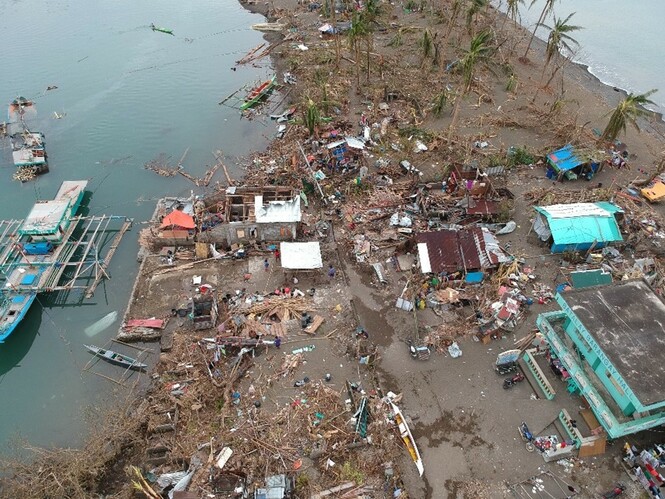
The research conducted in Fiji, the Philippines, Dominica and Kenya – all countries vulnerable to climate change, informed the drafting of a final Global Synthesis Report, consolidating the findings and providing recommendations for law and policymakers.
Recommendations include the need for countries to adopt laws, policies and action plans on climate change adaption, disaster risk reduction and sustainable development, that share the same goals and connect one another. Therefore, stronger coordination between ministries, agencies, and local administrations engaged in climate change adaption and disaster risk reduction is key.
Greater coherence is expected to enable more coordination across sectors, reducing duplications, optimising resources, and improving effectiveness, thereby enhancing the protection of at-risk communities.
The report’s author, Dr Tommaso Natoli, says both climate change adaptation and disaster risk reduction aim to reduce vulnerabilities and losses of at-risk communities, and both are at the core of any effort to enhance climate resilience.
“For greater coherence in these sectors to happen, we first must look closely and carefully at domestic laws and policies – which are instrumental for any effort to increase the harmonisation of implementing plans and measures.”
In addition to being coherent, law and policy on climate resilience should address and involve the poorest and most marginalised sectors of the population, for instance through adaptive social protection programmes and risk transfer systems.
The research is a starting point for helping us to understand what is going on in some of the most exposed countries in the world, identify the main obstacles to good governance and also to trace out the features of suitable normative models, says Dr Natoli.
Looking ahead, the results consolidated in the Global Synthesis Report will be shared with law and policy-makers in countries facing climate-related risks and used to advocate for legislative reforms also through National Red Cross and Red Crescent Societies.
For Dr Natoli, the report marks his decade-long journey into this area of disaster law which started when the sector was relatively new. “The idea of having a new field of research to explore fascinated me and I sensed that its importance would have increased more and more. Climate and disaster risks represent the greatest challenge that humanity will face in the next decades, and I am proud to contribute to the pivotal work that IFRC Disaster Law is doing to face it.”
________________________________________________________________________
In addition to the country reports, case studies on CCA and DRR integration in law and policy in the Philippines and in Fiji are available here.
An animation was also developed as part of the project, which can be found here.
________________________________________________________________________
The research received funding from the Irish Research Council and the European Union’s Horizon 2020 research and innovation programme under the Marie Skłodowska-Curie grant agreement No. 713279, and additional financial support was provided by the German Government.